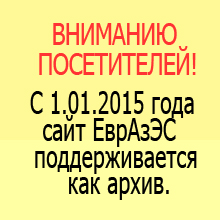|
AGREEMENT AGREEMENT on common unified system of customs regulation AGREEMENT on common unified system of customs regulation
The government of the In order to deepen the process of economic integration and fair competition between them, Reaffirming their commitment to the generally accepted principles and rules of the international trading system, Have agreed as follows: Article 1 1. The Parties hereby shall apply a common customs tariff in the common customs area of the Parties. 2. The common customs tariff is the instrument of the trading policy of the customs union. 3. The main objectives and purposes of the common customs tariff are: 1) to rationalize the structure of the import of goods to the common customs area of the Parties; 2) to maintain a rational proportion of imported and exported goods on the territory of the common customs area of the Parties; 3) to create conditions for progressive changes in the structure of manufacturing and consumption of goods in the customs union; 4) to protect the customs union’s economy from unfavorable influence from foreign competition; 5) to provide conditions for effective integration of the customs union into the world economy. Article 2 Concepts used in this Agreement have the following meaning: “base list of the common customs tariff”: the code of import customs duty rates, the amount of which was agreed upon by the Parties; “import customs duty”: required payment, collected by customs organs for goods imported to the common customs area of the Parties; “out-of-quota-tariff of the import customs duty”: customs duty tariff imposed on goods imported beyond determined tariff quota; “in-quota-tariff of the import customs duty”: customs duty rate imposed on goods imported within the limits of determined tariff quota; “common customs tariff”: the code of custom duty rates applied to goods imported into the common custom area from third countries, classified in accordance with the common commodity classification for foreign-economic activity. “common commodity classification for foreign-economic activity” is based on the harmonized system of description and coding of goods of the Worldwide Customs Organization. “import customs duty rate”: the amount (the size) of import customs duty; “customs tariff”: the code of import customs duty rates, applied in the Parties before the common customs tariff was established; “tariff quota”: a measure of import regulation into the customs area of the Parties of particular kinds of goods, which for a certain period of time provides application of a lower customs duty rate when a certain quantity of goods is imported (either on the basis of quantity or value), and a higher customs duty rate when the quantity of imported goods exceeds this quantity.
Article 3
1. The common customs tariff contains the following kinds of import customs duty rates: 1) Ad valorem rates, charged as a percentage of the customs value of customable goods; 2) Specific rates, charged for a single cost of customable goods; 3) Combined rates, combining both kinds of rates indicated in subparagraphs 1 and 2 of this paragraph. 2. Import customs duty rates of the common customs tariff are common and not to be changed depending on individuals moving goods across the customs border, types of transaction or other circumstances, excluding cases stipulated by this Agreement. 3. For the purpose of expeditious regulation of import of goods into the common customs area of the Parties, seasonal customs duty rates may, if necessary, be established instead of import customs duty rates. These seasonal customs duty rates must be valid no more than 6 months a year.
Article 4
1. The development of the common customs tariff shall be executed by the Parties with consideration of the following factors: 1) the level of unification of customs tariff achieved by the Parties in the process of implementation of the Agreement on the Unified Customs Tariff by the members of the customs Union from February 17, 2000. 2) import of specific goods into the customs territories of the Parties; 3) sensitivity of import customs duty rates for specific industries; 4) international obligations of Parties. 2. Parties shall coordinate the principles and the order of development of the common customs tariff, including deadlines, phases, and obligations of the Parties regarding decisions on changing import customs duty rates during the development of the common customs tariff, the conditions and the mechanism of tariff quota applications. 3. Parties shall not, as a rule, unilaterally change import customs duty rates stipulated in the base list of the common customs tariff. 4. Parties shall meet at least once every three months for negotiations on coordination of import customs duty rates for the purposes of the common customs tariff development. The results of these negotiations shall be documented in minutes which shall be forwarded to the Commission of the customs union, established in accordance with the Treaty on the Commission of the customs union dated October 6, 2007 (hereinafter referred to as the Commission). 5. Upon all of the Parties' agreement, and based on the protocols aforementioned in paragraph 4 of this article, the Commission shall develop the base list of the common customs tariff or change import custom duty rates contained in the base list of the common customs tariff. 6. Common customs tariff shall be considered developed if import customs duty rates of the Parties coincide in all of the commodity classifications. Parties shall coordinate and agree upon the conditions and order of one of the Parties’ application of higher or lower import custom duty rates in exceptional cases.
Article 5
1. Tariff preferences in the form of import customs duty exemption or a lower customs duty rate may apply for goods imported into the common customs area of the Parties. 2. Tariff preferences may not be individually applied. 3. Tariff preferences may be applied for the following goods: 1) Goods imported under the customs control within the frame of customs regimes established by the customs legislation; 2) Goods imported as a foreign founder's contribution to the charter capital within deadlines determined by charter documents for capital formation; 3) Goods imported within the framework of international cooperation of the Parties in research and exploration of space, and also within agreements regarding services in spacecraft launch, according to the catalogue approved by the Commission.
Article 6
1. The following goods imported from third countries into the common customs area of the Parties shall be exempt from import customs duty: 1) means of transport of international shipments of freight, baggage, and passengers, and also items of maintenance supply and equipment, fuel, food supplies and other property necessary for their normal operation en route, at interim stops, or goods acquired abroad because of failure of these means of transport; 2) products from the offshore operations of watercraft belonging to the Parties and also watercraft chartered by legal entities and individuals of the Parties; 3) goods imported for official or personal use by third countries’ representatives who have the right to duty-free import of such items based upon international treaties of the Parties or their legislation; 4) the currency of the Parties, the currency of third countries (except when used for numismatic purposes), and also paper holdings in accordance with the Parties’ legislation; 5) goods imported as humanitarian aid and (or) for the purpose of eliminating the consequences of accidents, catastrophes and natural calamities; 6) goods, except those that are excisable (excluding automobiles specifically meant for medical use), imported as free aid (assistance), and also charity via the third countries, international organizations, governments, including technical aid (assistance); 7) goods imported within the framework of customs regimes and established by the legislative acts in customs regulation which provide import customs duty exemption; 8) goods imported by individuals, except those forbidden for import, not meant for manufacturing or other entrepreneurial activity, in accordance with customs regulation legislation; 9) goods subject to government expropriation by the Parties in cases foreseen by their legislation. 2. The Parties shall have additional negotiations on application of tariff preferences in other cases, on unification of tariff preferences or their unilateral application. 3. The Commission shall establish the order of application of custom duty exemption. Article 7
1. The Unified System of tariff preferences of the customs union shall promote the economic growth of developing and underdeveloped countries. 2. The Commission shall determine the list of countries that use the common system of tariff preferences of the customs union and the list of goods imported into the common customs area of the Parties from developing and the least developed countries, regarding which tariff preferences are used. 3. Import customs duty rates amounting to 75 percent of import customs duty rates of the Common customs tariff shall be applied to goods in the list indicated in paragraph 2 of this article that are imported from developing countries which use the common system of customs tariff preferences of the customs union. 4. Zero import customs duty rates shall be applied to goods in the list in paragraph 2 of this article that are imported into the common customs area from the least developed countries which use the common system of customs tariff preferences.
Article 8
1. The Commission shall be empowered by the Parties to perform the following duties in maintaining the Common customs tariff: 1) maintain the common commodity classification for foreign-economic activity; 2) establish import customs duty rates (including seasonal); 3) introduce the tariff quotas and determine the order of their distribution; 4) determine the common system of customs tariff preferences, including: a) a list of developing countries that use the common system of preferences of the customs union; b) a list of the least developed countries that use the common system of preferences of the customs union; c) a list of goods imported into the common customs area of the customs union from developing and the least developed countries, regarding which common tariff preferences are applied; 5) establish the order of tariff preferences application, as stipulated in Article 5 of this Agreement. 2. The Committee shall take decisions on customs tariff regulation by a majority of two thirds of the votes. Decisions adopted by the Commission shall come into effect in the order stipulated in article 8 of the Treaty on the Commission of the customs union of October 6, 2007, and shall remain in effect until the Commission or a higher organ of the customs union adopts a different decision. 3. The Committee shall adopt decisions by consensus regarding sensitive goods, the list of which is approved by the higher organ of the Customs Union. Article 9
All disputes concerning application or interpretation of the regulations of this Agreement shall be resolved by consultations and negotiations between the Parties, and in case of failure to reach an agreement, disputes shall be submitted to the Court of the Eurasian Economic Community.
Article 10
Amendments and additions to this Agreement may be made by the Parties in the form of a separate protocol.
Article 11
The entry into effect of, joining of, and withdrawal from this Agreement shall take place in accordance with the Protocol on the entry into effect of, joining of, and withdrawal from international treaties aimed at developing the contractual and legal framework of the Customs Union, dated October 6, 2007.
Done in the city of The original text of this Agreement shall be retained by the Integration Committee of the Eurasian Economic Community, which shall transmit a true copy to each of the Parties.
For the government of the For the government of the For the government of the
|
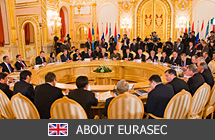

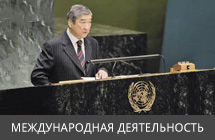
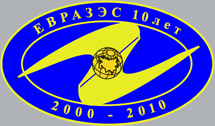
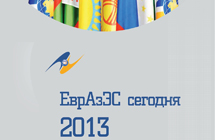
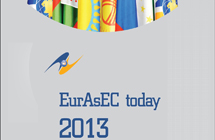
Поиск 10.10.2014 Заседание Межгосударственного совета ЕврАзЭС07.10.2014 Мультимедийная пресс-конференция в агентстве «Россия сегодня»03.10.2014 Встреча с Послом Финляндской Республики04.08.2014 Встреча Генерального секретаря ЕврАзЭС с Послом Республики Таджикистан20.06.2014 Премии Петербургского международного юридического форума «За вклад в развитие правовой интеграции на евразийском пространстве»28.05.2014 Договор о Евразийском экономическом союзе – важнейшее событие в новейшей истории наших стран25.05.2014 Презентация книги «Евразийский проект Нурсултана Назарбаева, воплощенный в жизнь. К 20-летию евразийского проекта 1994–2014»24.05.2014 VII АСТАНИНСКИЙ ЭКОНОМИЧЕСКИЙ ФОРУМ. Панельная сессия «Евразийской экономической интеграции – 20 лет. Итоги и перспективы»24.05.2014 VII Астанинский экономический форум и II Всемирная Антикризисная конференция, 21-23 мая 2014 года, Астана24.05.2014 Петербургский международный экономический форум, 23 – 24 мая 2014 года, Санкт-Петербург |

Евразийское экономическое сообщество
ЕврАзЭС
-
Страны участники
 Беларусь
Беларусь
-
 Казахстан
Казахстан
-
 Кыргызстан
Кыргызстан
-
 Россия
Россия
-
 Таджикистан
Таджикистан
-
 Узбекистан
Узбекистан
-
 Молдова
Молдова
-
 Украина
Украина



